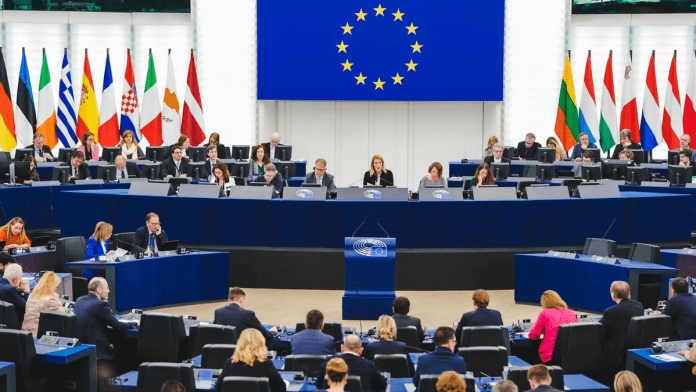News in brief:
– European Parliament adopts updated regulations for tuna fishing, aiming for parity between EU and third-country fleets.
– Despite measures to safeguard the environment and promote equitable quota distribution, concerns persist over the impact on small-scale fishermen.
The European Parliament endorsed updated measures on Tuesday, aimed at standardising rules across both EU and third-country fleets. While the majority of these measures received widespread support, concerns linger over the equitable distribution of quotas, particularly impacting small-scale fishermen.
The report, passed during a plenary session, effectively integrates recommendations from ICCAT, the governing body overseeing tuna fishing in EU waters. The rapporteur for the text, MEP Clara Aguilera (S&D), emphasised the need for robust support for the sector, drawing parallels with the challenges faced by farmers in delivering quality produce.
The proposal for updating regulations dates back to April 2022 when the European Commission outlined plans to revise both the 2017 regulation on tuna conservation and the 2022 regulation governing bluefin tuna management. This newly passed text incorporates several amendments aligning with ICCAT’s annual recommendations, ensuring parity between EU and third-country fleets.

Environmental safeguards for aquatic animals
The updated rules set forth stringent standards for tropical tuna fishing, including rigorous catch monitoring and declarations. Notably, measures to minimise turtle by-catch and protect endangered species like shortfin mako sharks have been underscored. Prohibiting the retention of mako sharks on vessels marks a significant win for environmental advocates.
With a focus on the conservation of bluefin tuna stocks, the text transposes ICCAT’s latest recommendations into the regulatory framework. However, concerns persist over the equitable allocation of quotas, particularly concerning small-scale fishermen. Despite efforts to address this issue, disparities in quota distribution persist across member states, posing challenges for local economies.
While the management plan emphasises the promotion of inshore fishing activities and environmentally friendly techniques, discrepancies in quota allocation remain a pressing concern. As stakeholders continue to navigate these challenges, the need for a balanced approach that supports both conservation efforts and local livelihoods remains paramount.



